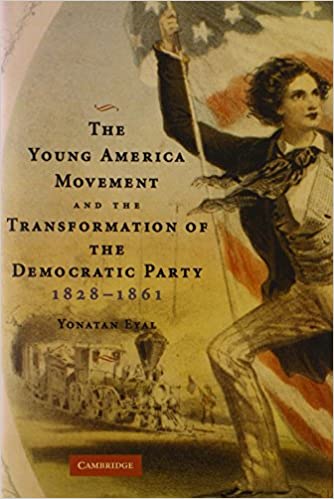The Kansas-Nebraska Act compelled former Whigs and antislavery northern Democrats to join new parties. The American, or Know Nothing Party, was founded by Nativists who blamed the recent flood of Catholic immigrants for rising crime, drunkenness, and poverty. The party enjoyed support in both the North and South because it was flexible on the slavery issue. More significant was the Republican party, a party dedicated to opposing the expansion of slavery. It was a sectional party that appealed to growing antislavery sentiments in the North. It was brought about by it's opposition to the Kansas Nebraska act, which he regarded as an outrage.
 As the Whig Party collapsed, a new party, the Know-Nothings, or American Party, gained in popularity. Part adherents were identified as the Young America Movement. The Know-Nothing party especially appealed to evangelical Protestants, who opposed Catholics, largely because of the huge influx of Catholic immigrants from Ireland triggered by the famine of the 1840s. The Know-Nothings—the name derived from their pledge to say "I know nothing" when asked about the policies of their party—also picked up support from former Whigs and Democrats disgusted with “politics as usual.” In 1854, the American party suddenly took political control of Massachusetts and spread rapidly across the nation. They generated anti-black feelings in the North, and their antislavery members defected to the newly formed Republican Party, which came into existence in 1854. In less than two years, the Know-Nothings collapsed for reasons that are still somewhat obscure. Most probably, Northerners worried less about immigration as it slowed down, and turned their attention to the slavery issue.
As the Whig Party collapsed, a new party, the Know-Nothings, or American Party, gained in popularity. Part adherents were identified as the Young America Movement. The Know-Nothing party especially appealed to evangelical Protestants, who opposed Catholics, largely because of the huge influx of Catholic immigrants from Ireland triggered by the famine of the 1840s. The Know-Nothings—the name derived from their pledge to say "I know nothing" when asked about the policies of their party—also picked up support from former Whigs and Democrats disgusted with “politics as usual.” In 1854, the American party suddenly took political control of Massachusetts and spread rapidly across the nation. They generated anti-black feelings in the North, and their antislavery members defected to the newly formed Republican Party, which came into existence in 1854. In less than two years, the Know-Nothings collapsed for reasons that are still somewhat obscure. Most probably, Northerners worried less about immigration as it slowed down, and turned their attention to the slavery issue.
In 1855, a rising politician in Illinois, Abraham Lincoln, who had served one term in the House of Representatives from1846 to 1848, was trying to keep his political career alive. Formerly a Whig, he joined the Republican Party and condemned the Kansas-Nebraska Act. It's worth noting that when he ran for the Senate from Illinois in 1858 and for president in 1860, the issue most heavily debated was that of slavery in the territories. Attempts to remove slavery where it already existed would have to wait until after the Civil War. The country remained divided during the latter part of the 1850s; the wounds were becoming too deep to heal.
The Legacy of Nativism. The Nativist movement seems to belong to another era, but looking back from where the country is today in 2021, it is obvious that the sentiments aroused in the 1950s have been a persistent phenomenon in American history. Following the Civil War as a result of the Industrial Revolution in Europe and America, the country was flooded with immigrants from areas that differed from pre-Civil War immigration: Italy, Greece, Eastern Europe including Russia, the Caribbean and Asia. Every time a new flood appeared, resentment among "older Americans," that is those whose families had been in the country for a generation or more, bubbled up. Fear existed that they would bring things like socialism or communism to the country, or that new religions were threatened the old order. Much of it was simply racist, and that attitude has persisted into recent times, when outrage against immigrants from Latin America, the Middle East, and Asia has risen and remains a touchy political issue.